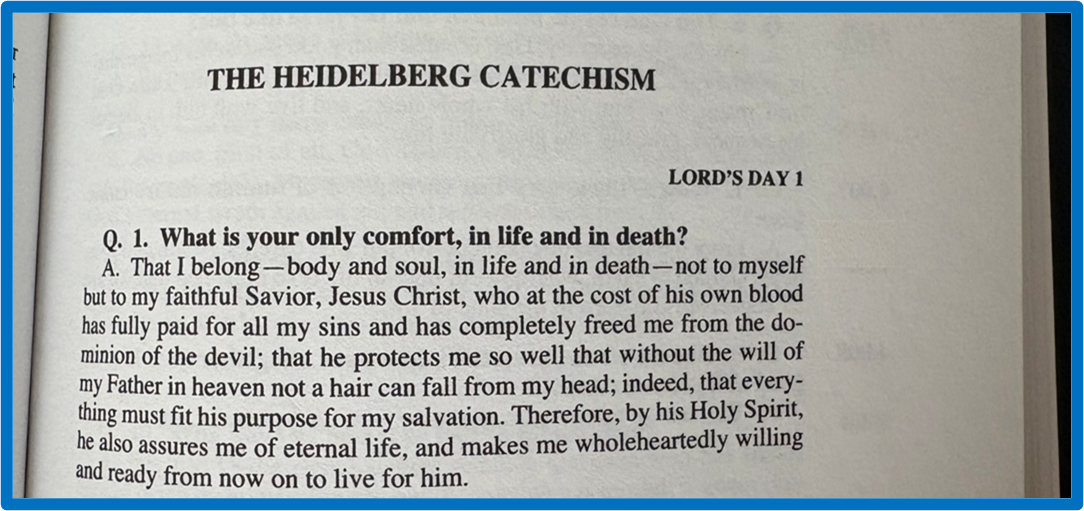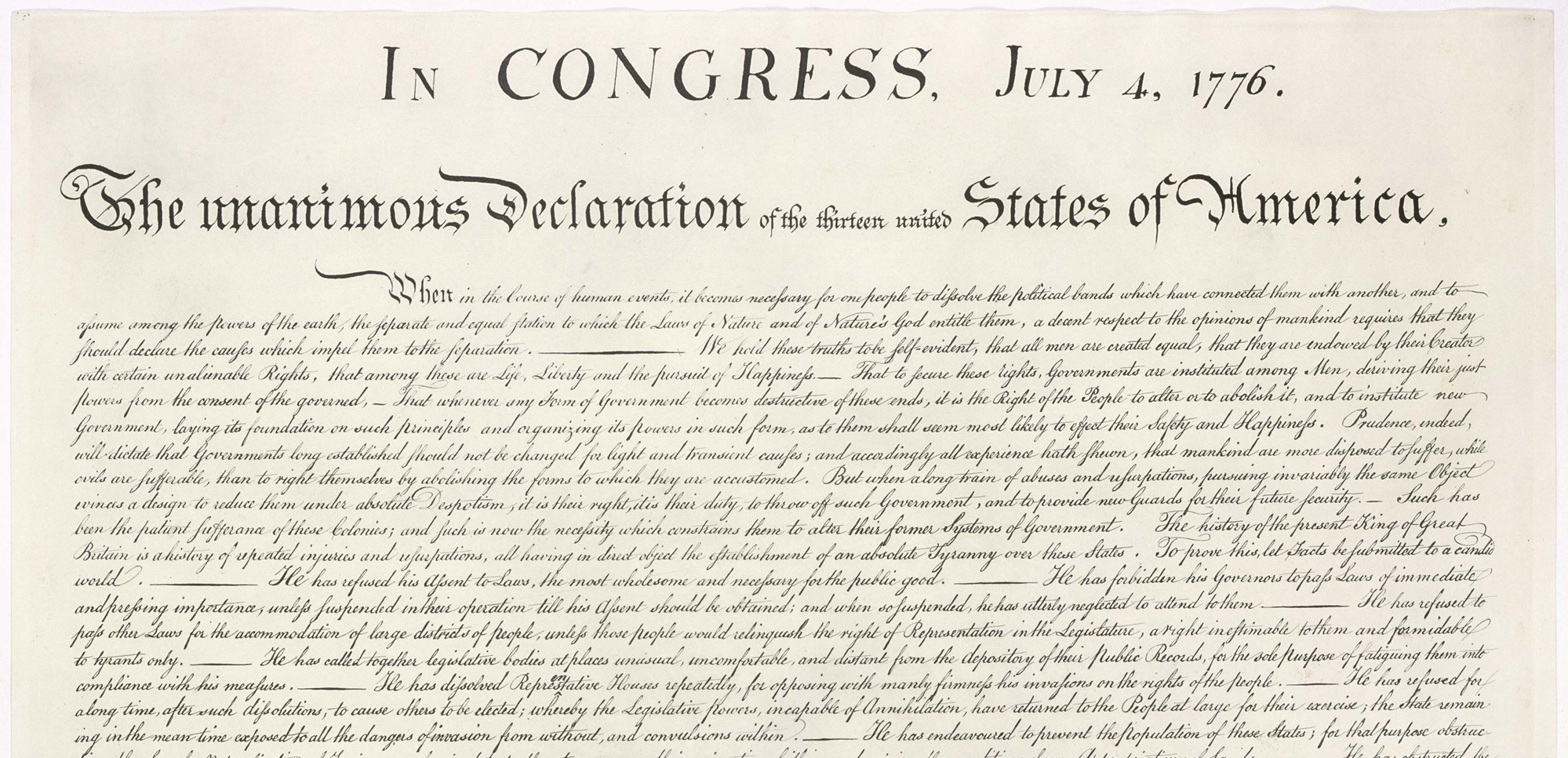It’s a good sign when you think about Sunday’s sermon the entire following week. Even when you preached the sermon. It was my privilege to preach last Sunday’s sermon at Ossian Presbyterian Church. In the course of the sermon, and it made sense in the context of the sermon, I quoted the first question from Lord’s Day 1 of the Heidelberg Catechism. For those of you not familiar with the catechism, it dates from 1563 and the now German city of Heidelberg. It has been used throughout the various branches of Reformed Christianity, but is especially identified with the Dutch Reformed churches of which it is one of the three standards of faith, or Forms of Unity, along with the Canons of Dort and the Belgic Confession.
Enough of the history lesson. In the sermon I made the point that creeds, confessions, and catechisms help us make sense of our world and our lives in it. Lived experience is not ultimate truth for those who know the creeds of the church. Rather, the creeds explain the meaning of those experiences.
Here is the first question and answer from the Heidelberg Catechism (1963 translation):
Q. What is your only comfort, in life and in death?
A. That I belong—body and soul, in life and in death—not to myself but to my faithful Savior, Jesus Christ, who at the cost of his own blood has fully paid for all my sins and has completely freed me from the dominion of the devil; that he protects me so well that without the will of my Father in heaven not a hair can fall from my head; indeed, that everything must fit his purpose for my salvation. Therefore, by his Holy Spirit, he also assures me of eternal life, and makes me wholeheartedly willing and ready from now on to live for him.
By this past Sunday as the sermon was delivered, we had already heard some of the heart-breaking, gut-wrenching stories from the hill country of Texas. This week as I thought about the sermon the preacher preached, I wondered, “Dare we say to a grieving parent or grandparent whose daughter or granddaughter was away at summer camp and will never return, ‘Jesus Christ, the faithful Savior, protects us so well that without the will of our Father in heaven not a hair can fall from our heads; indeed, that everything must fit his purpose for our salvation.’?” Some might say how dare we say such a thing.
A friend of a friend is a pastor in the Texas hill country. The week has been long and hard as he seeks to offer Gospel comfort to those who have lost so much. Certainly, this is a time for those close to the sorrow and those of us far away to heed James’ admonition to “be quick to hear, slow to speak.” (James 1:19). But the time to cry (Ecclesiastes 3:4) will pass, and slowly, cautiously, we must speak. The words of the catechism that reflect the words of Jesus telling us that the Father has numbered the hairs of our heads (Matthew 10:30) must be said, “Without the will of our Father in heaven not a hair can fall from our heads; indeed, that everything must fit his purpose for our salvation.”
I have already read rants against God and, appropriately so, against those who hide from tragedy behind a flimsy wall of out-of-context Bible verses. We have heard discussion of fate and bad luck, human error and climate change. Partisan political blame is rampant. God’s sovereign and providential care for us is not fate, however, and God plays no partisan blame game. Note that the catechism understands God’s purpose for us is not our best life now or shallow comfort when the unspeakable happens. Rather, the catechism, indeed the Gospel, speaks of what we see now only as in a mirror dimly, a time when “He will wipe away every tear from their eyes, and death shall be no more, neither shall there be mourning, nor crying, nor pain anymore, for the former things have passed away.” (Revelation 21:4)
Were I in the Texas hill country, I would pray for the wisdom to be quick to listen and slow to speak. In my own world of petty annoyances and unnecessary anxiety, of stubbornly bad habits, and of friends facing difficult diagnoses and debilitating disappointments, the catechism reminds me to look for “then face to face.” (1 Corinthians 13:12-13)






